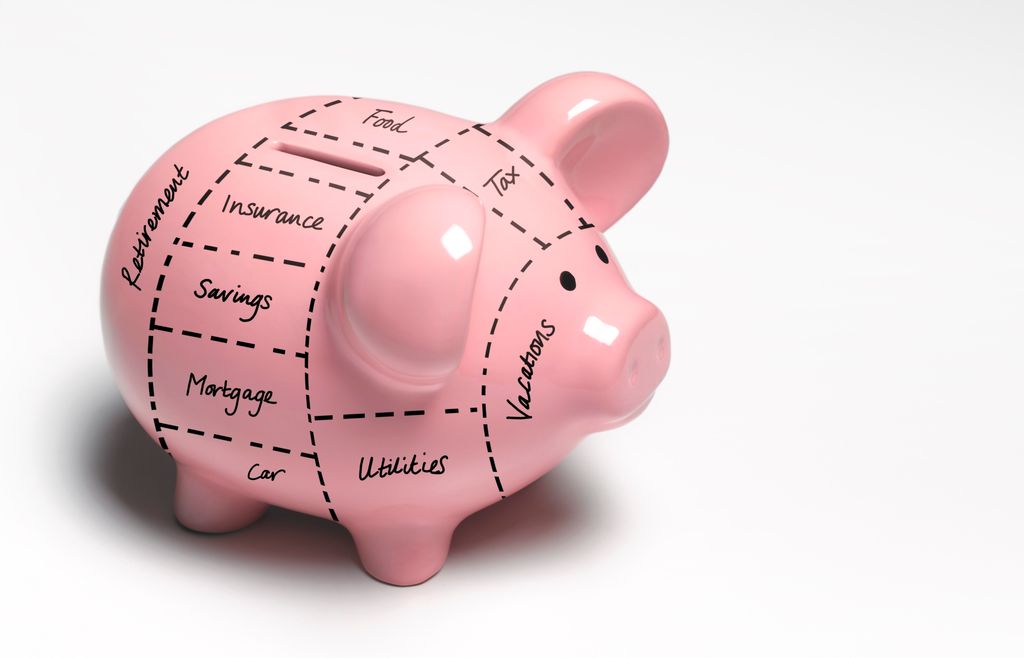Anyone who is starting to get their head around finance will be met with the same confusing words cropping up regularly. To help you get a better understanding, here’s the ultimate guide to some of the key financial terms you should have on your radar.
Sarah Coles, Head of Personal Finance at Hargreaves Lansdown, says one of the most annoying phenomena is that people have created lots of confusing words to describe the same simple thing. You might hear people talking about shares or stocks or equities, leaving you wondering what any of them are... but they’re all the same!
1. Asset
An asset is anything you own that adds financial value. This is opposed to a liability, which is money you owe. Examples of personal assets include your home and shares as well as other property, such as rental homes, commercial properties, or a savings account.
2. Bonds
Bonds are issued by governments and corporations as a means of raising money. Unlike stocks, they do not provide ownership to the issuer. Instead, a bond purchaser makes a loan to the issuer that must be paid back at a predetermined time. The issuer pays periodic interest to the purchaser while it has use of their money, generally twice a year.
3. The Bank of England Base Rate
The base rate is the charge placed on banks for lending and savings and is set by the Bank of England. This is important to variable-rate customers, as it can either influence, or in the case of a tracker rate, directly impact your mortgage interest. It does also influence fixed-rates, but not directly.
4. Capital Gains
A capital gain is an increase in the value of an asset or investment above the price you initially paid for it. If you sell the asset for less than the original purchase price, that would be considered a capital loss.
5. Compound Interest
This refers to “interest on interest”. Rather, when you’re investing or saving, compound interest is earned on the amount you deposited, plus any interest you’ve accumulated over time. While it can grow your savings, it can also increase your debt; compound interest is charged on the initial amount you were loaned, as well as the expenses added to your outstanding balance over time.
6. Cryptocurrency
Cryptocurrency is any form of currency that exists digitally or virtually and uses cryptography to secure transactions.
Cryptocurrency is a recent phenomenon with a whole new word salad to digest – from Blockchain to Altcoin and Cold Wallets. Sarah explains: “You could spend a great deal of time investigating, but the key with crypto is that this is gambling. There’s no real underlying value, so prices could rocket or plummet for no real reason. You might want to gamble, but need to know that you could lose everything.”
7. Interest Rate
An interest rate is a percentage charged on the total amount you borrow or paid on the amount you save. If you’re a borrower, the interest rate is the amount you are charged for borrowing money. If you’re a saver, the interest is paid to you – because banks are paying to 'hire' your money.
8. Liabilities
A liability is something that a company or individual owes – typically a debt of money. Common liabilities can include accounts payable, loans, mortgages and more. Liabilities are sometimes contrasted with assets, something that a company or individual owns.
9. Liquidity
Liquidity means how quickly you can get your hands on your cash. In simpler terms, liquidity is to get your money whenever you need it. Liquidity might be your emergency savings account or the cash lying with you that you can access in case of any unforeseen happening or any financial setback.
10. Stocks/Shares
Stocks are portions/shares of ownership in a company. Companies sell shares or stocks to raise money for developing products, paying debts and growing their business. When individuals or entities buy a company's stock, they are investing in that company.
DISCOVER: Will my side hustle affect my tax bill? Warning for Etsy, Vinted and Depop users
Google can be an excellent place to get definitions of certain financial terms (like "what does ISA stand for" or "when should I start receiving the state pension"). It's very important to remember that taxes and financial rules change regularly so make sure what you're reading is up to date.
Sarah also reiterated that we should "take care" about who is providing this education, however. A newspaper or magazine, or a qualified and regulated professional or company, can be trusted. An online finfluencer could lead you astray – even if they have an enormous number of followers.












